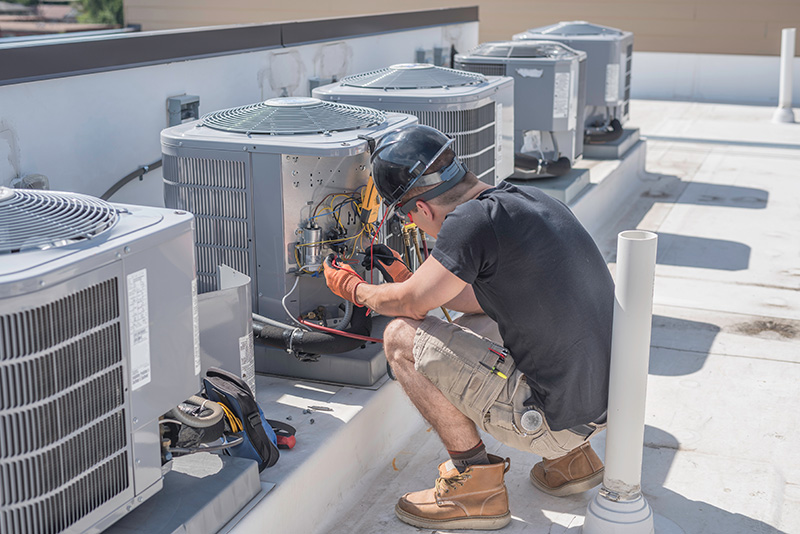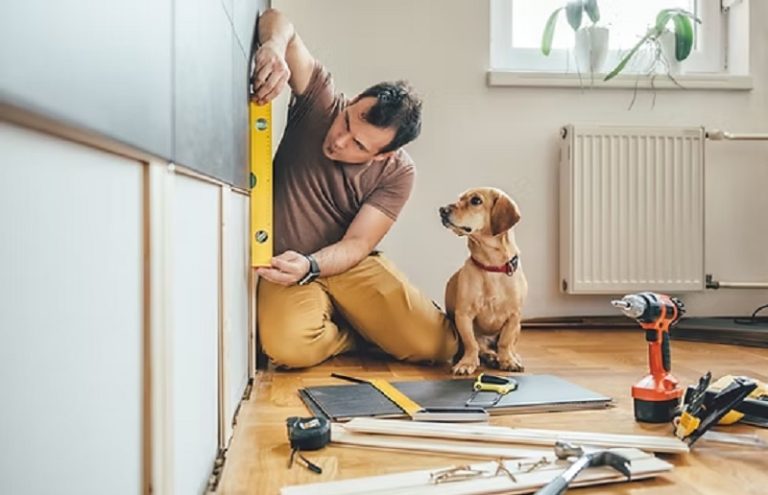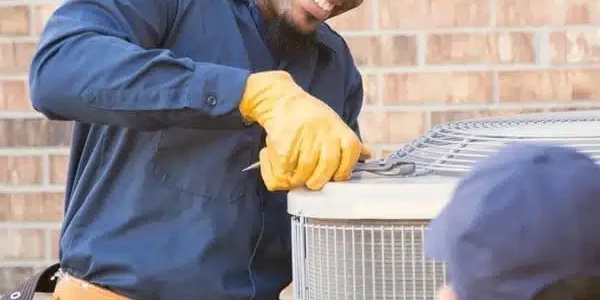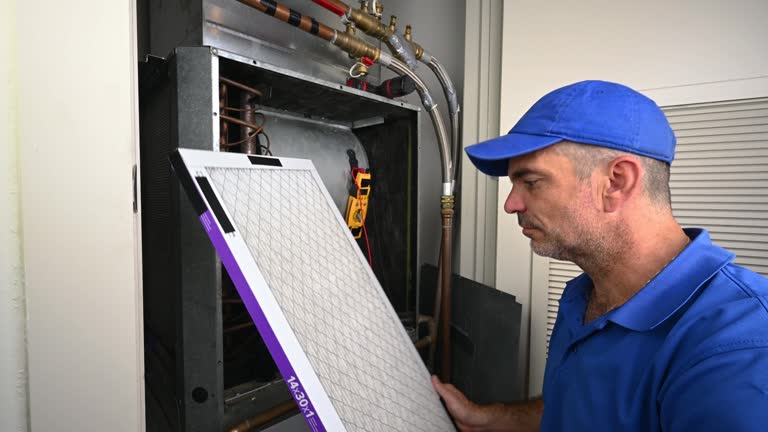
Your HVAC (Heating, Ventilation, and Air Conditioning) system plays a vital role in ensuring the comfort of your home or workplace, regulating temperature, humidity, and air quality. But like any complex system, your HVAC needs regular attention to perform optimally. While many homeowners are familiar with the necessity of routine maintenance, fewer are aware of the key repairs that can keep their HVAC system running efficiently and prevent major breakdowns.
HVAC systems consist of several components, and each of them has the potential to impact the system’s overall performance. If you’re noticing discomfort in your home, rising energy bills, or strange noises from your unit, it may be time to assess whether your HVAC system is missing essential repairs. Below, we’ll explore the critical repair elements you might be overlooking and why addressing them is so important for maintaining your system’s longevity and performance.
1. Leaky Ductwork: A Hidden Energy Drain
One of the most common yet often overlooked issues in HVAC systems is leaky ductwork. Ducts are responsible for distributing heated or cooled air throughout your home, but if they have leaks, a significant portion of that air is wasted. Leaks can occur due to wear and tear, poor installation, or even a build-up of debris over time. When air escapes through these leaks, it forces your HVAC system to work harder to maintain the desired temperature, which can lead to increased energy consumption and higher utility bills.
Why It’s Essential:
Repairing ductwork leaks is a crucial aspect of maintaining HVAC efficiency. Even small leaks can have a big impact on your system’s performance, causing inconsistent temperatures and higher energy costs. Sealing the ducts not only improves airflow but also ensures that the air being circulated is at the correct temperature, preventing wasted energy and improving comfort levels throughout your home.
2. Dirty Air Filters: The First Line of Defense
Air filters are one of the most important components in any HVAC system. They prevent dust, dirt, and debris from entering the system and clogging vital parts like the coils and blower. However, over time, air filters can become clogged with dirt and dust, reducing airflow and forcing the system to work harder to circulate air.
Why It’s Essential:
A dirty air filter can cause several problems. Reduced airflow can lead to poor temperature regulation, while the increased strain on the system can lead to overheating or premature wear. Replacing or cleaning your filters regularly ensures that air flows freely, and your HVAC system operates efficiently. If you’re using a high-efficiency filter, it’s important to change it every 1 to 3 months, depending on usage and the type of filter.
3. Refrigerant Leaks: A Cool Down Turned Hot
In air conditioning systems, refrigerant is the substance that helps remove heat from the air, keeping your home cool. If your air conditioning system is low on refrigerant, it may be due to a leak in the coils or connections. When refrigerant levels drop, your air conditioner will struggle to maintain the desired temperature, and the system may start blowing warm air or freezing up altogether.
Why It’s Essential:
Refrigerant leaks are not only bad for your comfort but also harmful to the environment. Low refrigerant levels can cause damage to the compressor, which is one of the most expensive parts of the system to replace. Repairing the refrigerant leak and recharging the system ensures that your AC can cool your home efficiently and safely. It’s important to note that only a licensed professional should handle refrigerant repairs, as improper handling can result in serious damage or safety hazards.
4. Malfunctioning Thermostat: Misleading Temperature Readings
The thermostat is the command center of your HVAC system. It determines the temperature settings that trigger the heating or cooling functions of the system. However, if the thermostat isn’t functioning properly, it may not accurately read or respond to the temperature in your home. This can result in the system running inefficiently, either constantly heating or cooling when it’s not needed or failing to reach the desired temperature.
Why It’s Essential:
If your thermostat is malfunctioning, it can lead to discomfort and unnecessary energy expenditure. Calibrating or replacing a faulty thermostat is crucial to ensuring that your HVAC system operates based on accurate temperature readings. In modern systems, upgrading to a smart thermostat can also provide additional benefits, including the ability to control your HVAC system remotely and schedule temperature adjustments based on your daily routine.
5. Clogged Condensate Drains: The Silent Problem
Condensate drains are responsible for removing the excess moisture created by your air conditioner during the cooling process. Over time, these drains can become clogged with algae, dirt, and debris, leading to water damage or even mold growth. If you notice water pooling around your HVAC unit or a musty smell in your home, it could be a sign that the condensate drain is clogged.
Why It’s Essential:
A clogged condensate drain can cause water damage to your HVAC system, particularly to the evaporator coils and the surrounding areas. If left unchecked, the excess moisture can lead to mold and mildew growth, which can affect both your system’s efficiency and your indoor air quality. Regularly cleaning and maintaining your condensate drain can prevent these issues and protect the integrity of your HVAC system.
6. Broken or Worn-Out Fan Blades: Unpleasant Noises and Inefficiency
The fan in your HVAC system plays a crucial role in circulating air throughout your home. If the fan blades are damaged, worn, or unbalanced, it can result in strange noises, such as grinding, squealing, or rattling. A malfunctioning fan also reduces the airflow and efficiency of your system, making it harder for the system to cool or heat your space effectively.
Why It’s Essential:
Replacing damaged or worn-out fan blades will not only restore quiet operation to your HVAC system but will also improve its airflow and overall performance. If your system is making unusual noises, it’s important to have the fan inspected and repaired to avoid further damage and ensure that the system is running at its best.
7. Faulty Duct Insulation: Energy Loss and Temperature Fluctuations
Duct insulation is an often-overlooked component that can have a significant impact on your HVAC system’s efficiency. Insulation helps prevent energy loss as air travels through the ducts. If the insulation is damaged or deteriorating, the air can lose its temperature, leading to higher energy consumption as the system works harder to maintain the desired conditions.
Why It’s Essential:
If your home’s ducts are not properly insulated, you may notice uneven temperatures in different rooms or higher utility bills. Repairing or replacing worn insulation helps to maintain a consistent temperature throughout your home and ensures that your HVAC system operates as efficiently as possible. Insulated ducts also help reduce the strain on your system, preventing unnecessary wear and tear.
8. Aging or Worn-Out Parts: The Importance of Timely Replacements
As your HVAC system ages, various components, such as capacitors, motors, and compressors, may wear out. While some parts can be repaired, others may need to be replaced entirely. Ignoring signs of wear and tear, such as strange noises, inconsistent temperature control, or failure to turn on, can result in complete system failure.
Why It’s Essential:
Replacing worn-out components before they break down completely can save you from unexpected, costly repairs or replacements. Regular inspections and early identification of failing parts can help you maintain your HVAC system’s efficiency and prevent inconvenient breakdowns.
Conclusion
Your HVAC system is a complex network of parts that work together to ensure your home’s comfort. However, when even one of these components malfunctions, it can cause discomfort, higher energy bills, and potential system breakdowns. By addressing these essential repair needs—such as fixing leaky ductwork, replacing dirty filters, repairing refrigerant leaks, and inspecting thermostats—you can improve your HVAC system’s efficiency and longevity.
Timely repairs not only restore your system to optimal performance but also prevent costly emergency fixes down the line. Regular inspections and maintenance are crucial for keeping your HVAC system running smoothly, and with the right attention to these essential repairs, you can enjoy a comfortable, energy-efficient home all year round.
You May Also Like
How to Improve Your Home wit ...
16 April 2025
Maintenance vs. Ventilation: ...
06 March 2025
Everything You Need to Know ...
07 January 2025
Popular Post
Expert Insights on Installing Solar Power Systems
28 October 2025Local Plumbing Expertise You Can Trust in Killeen
22 August 2025Innovative Solutions for Refurbishing Commercial Spaces
14 August 2025How to Improve Your Home with Valuation and Agents
30 April 2025Recent Posts
- Expert Insights on Installing Solar Power Systems October 28, 2025
- Local Plumbing Expertise You Can Trust in Killeen August 22, 2025
- Innovative Solutions for Refurbishing Commercial Spaces August 14, 2025
- How to Improve Your Home with Valuation and Agents April 30, 2025
- The Beginner’s Guide to Design in Home Improvement April 24, 2025
- How to Improve Your Home with Maintenance and Repair April 16, 2025
- Why Your Roofing Strategy Needs a Flat Roof April 10, 2025
Archives
- October 2025 (1)
- August 2025 (2)
- April 2025 (10)
- March 2025 (2)
- February 2025 (7)
- January 2025 (8)
- December 2024 (6)
- November 2024 (6)
- October 2024 (6)
- September 2024 (5)
Categories
- Cleaning & Maintenance (5)
- Gardening & Outdoor (5)
- Home Decor (5)
- Home Improvement (5)
- HVAC (5)
- Moving (5)
- Plumbing (6)
- Real Estate & Property (5)
- Roofing (6)
- Smart Home (6)





